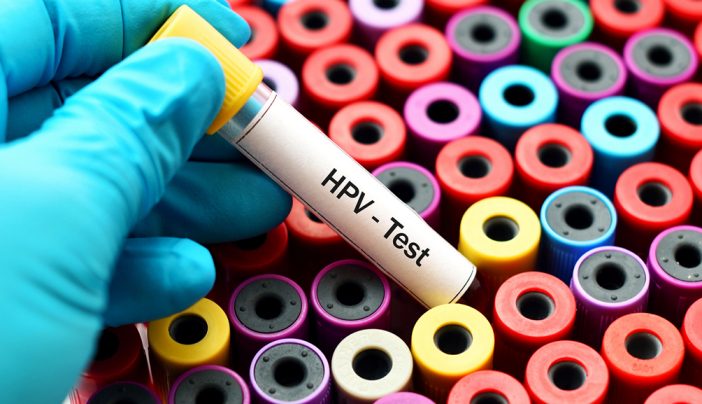
Human papillomavirus (HPV) is a widespread viral infection that affects both men and women. There are about 100 different varieties of HPV, and some of them can cause health issues including genital warts and cervical cancer. HPV testing detects the presence of the virus in the body and can help diagnose and prevent certain health problems.
Table of Contents
HPV Types
Cervical cancer is caused by certain kinds of HPV, notably strains 16 and 18. These HPV strains are classified “high-risk,” and they are responsible for approximately 70% of cervical cancer cases. Other kinds of HPV, classed as “low-risk,” can produce genital warts but seldom cause cancer. Routine cervical cancer screening, including HPV testing, can help detect the presence of high-risk HPV varieties and potentially diagnose cervical cancer early before it progresses.
Ways of Testing
The HPV DNA test and the Pap test are the two types of HPV tests (also known as a Pap smear). The HPV DNA test looks for the virus’s genetic material in cervical cells, whereas the Pap test looks for HPV-caused alterations in cervical cells. Both tests can be performed independently or in conjunction with a cervical cancer screening.
Cervical Cancer Risks
Regardless of sexual history, the American College of Obstetricians and Gynecologists (ACOG) recommends that women begin cervical cancer screening at the age of 21. Every three years, women between the ages of 21 and 29 should receive a Pap test. Screening can be done every five years for women between the ages of 30 and 65 if a Pap test is combined with an HPV test.
Men’s HPV Testing
It should be noted that HPV testing is not suggested for men because there is no FDA-approved HPV test for men. Males who have HPV can pass it on to their sexual partners, although they are unlikely to develop health problems as a result of the virus. Men who experience symptoms such as genital warts should see a doctor.
Vaccinations against HPV
It’s also worth noting that HPV immunizations can aid in the prevention of cervical cancer. The Centers for Disease Control and Prevention (CDC) advises that all children between the ages of 11 and 12 receive the HPV vaccine, as well as teens and young adults up to the age of 26 who have not yet gotten it.
It is critical to note that an HPV test can only detect the presence of the virus and cannot predict whether a woman will develop cervical cancer. A positive HPV test result does not imply that a woman has cervical cancer or the severity of the infection. It merely signifies that the woman was exposed to the virus and that additional testing is required to identify whether any abnormal cells are present in the cervix.

HPV Positive Test Results
If an HPV test results in a positive result, women are usually advised to have a colposcopy, a procedure in which the cervix is examined more closely. During a colposcopy, a healthcare expert will inspect the cervix with a special microscope and, if necessary, extract a tiny sample of cervical tissue (a biopsy). This process can assist determine if there are any abnormal cells that need to be eliminated.
In some circumstances, women with positive HPV test results may be closely followed rather of having a colposcopy. This is known as “watchful waiting” or “active surveillance,” and it is usually only suggested for women who are at low risk of developing cervical cancer. If cervical cancer does develop, active surveillance seeks to detect it at an early stage. Women who are being closely followed will require regular follow-up testing, such as Pap tests or HPV tests.
Women must practice safe sex and restrict the number of sexual partners they have in addition to having regular cervical cancer screenings. Condom use that is consistent and accurate can also help lower the chance of developing HPV.
The Dangers of Being Tested
It is crucial to highlight that HPV testing is not suggested for women who have undergone a hysterectomy (uterine removal) and had their cervix removed as part of the procedure, providing they have no history of cervical cancer. This is due to the fact that cervical cancer can no longer form in these women.
Should I Have My HPV Tested?
HPV testing is an important tool for detecting cervical cancer early. Cervical cancer screening is suggested for women beginning at the age of 21. If an HPV test results in a positive result, women must consult with their healthcare physician and, if necessary, undertake additional testing. Cervical cancer screenings on a regular basis, safe sex practices, and limiting the number of sexual partners can all help safeguard women’s health and avoid cervical cancer. It is equally critical for women to have an open communication with their healthcare professionals about their specific requirements and risks, as well as to ensure that they receive the necessary exams and vaccines.
